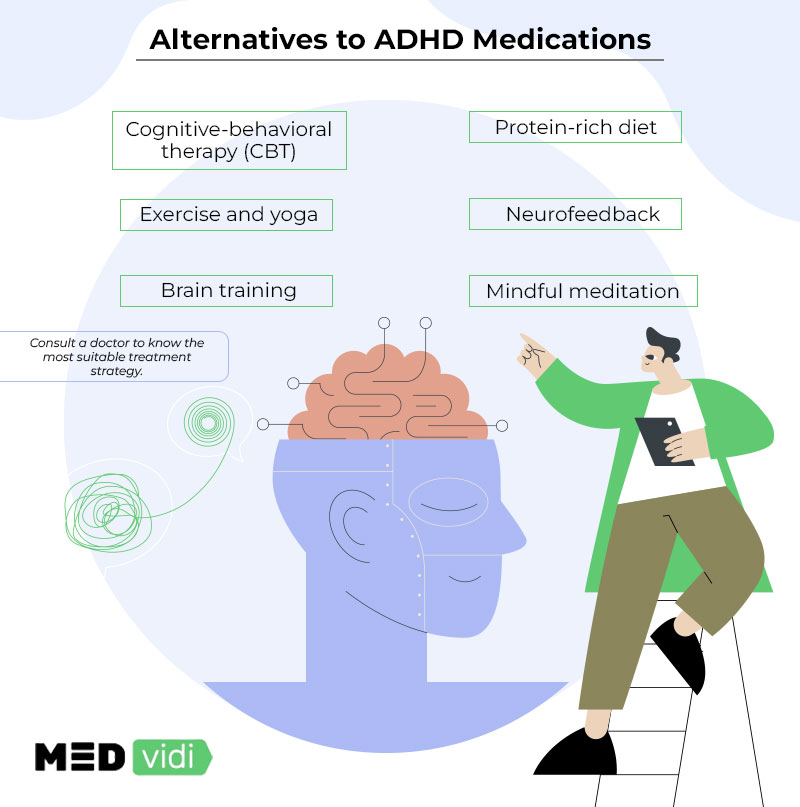Telehealth Psychiatrist Appointments for Accessible Care
The Benefits of Individualized ADHD Treatment Prepare For Better End Results
The implementation of personalized ADHD treatment strategies has actually emerged as an essential technique in improving restorative end results for people affected by this condition (ADHD treatment). By identifying the distinct manifestations of ADHD in each person, these personalized treatments promote greater engagement and motivation, inevitably leading to a lot more reliable coping methods.
Comprehending ADHD Irregularity
Although Attention-Deficit/Hyperactivity Disorder (ADHD) is usually viewed as a singular problem, its indications can vary significantly amongst individuals. This irregularity is affected by a variety of variables, consisting of age, gender, existing side-by-side problems, and environmental contexts. Youngsters with ADHD might show hyper habits, while adults might mainly struggle with interest shortages. Sex distinctions also play a role, as men are much more often detected with ADHD and often present a lot more overt symptoms, whereas women might offer with less apparent inattentiveness.
Furthermore, individuals with ADHD may experience a range of psychological and behavior obstacles, such as stress and anxiety or oppositional defiance, that can complicate diagnosis and therapy. The interaction of these factors can lead to varied experiences of ADHD, demanding a nuanced understanding of the disorder. It is also worth noting that ADHD can offer differently across various social contexts, influencing how signs and symptoms are acknowledged and dealt with. This understanding emphasizes the significance of acknowledging ADHD as a multifaceted condition, which requires individualized approaches to treatment that take into consideration the unique needs and experiences of each individual.
Secret Parts of Personalization
Personalized ADHD treatment strategies are based in a number of crucial parts that ensure effective administration of the disorder. Initially, a comprehensive analysis is essential, involving standard rating scales, interviews, and behavioral observations. This detailed assessment allows medical professionals to comprehend the individual's one-of-a-kind signs and symptoms, staminas, and obstacles.
2nd, the participation of multiple stakeholders, including moms and dads, instructors, and the person, adds to an alternative view of the individual's needs. Cooperation fosters a helpful atmosphere that can adapt to the individual's context and way of living.
Third, treatment strategies need to be adaptable and versatile, allowing for alterations based on ongoing comments and the individual's advancing demands. This adaptability enables the combination of different restorative techniques, such as behavioral treatments, psychoeducation, and medicine administration.
Furthermore, cultural and contextual variables must be taken into consideration. Identifying the individual's history, values, and choices ensures that the therapy is relevant and respectful.
Last but not least, regular follow-ups and evaluations are vital to keep an eye on progress and make needed changes. By focusing on these vital parts, personalized ADHD therapy plans can considerably boost the effectiveness of treatments, bring about boosted results for people with ADHD.
Improved Engagement and Inspiration
To properly promote improved engagement and motivation in individuals with ADHD, it is necessary to integrate methods that reverberate with their passions and toughness. Personalized treatment plans that align with an individual's passions can result in raised engagement in restorative activities, promoting a feeling of ownership and interest for the process.
Using interactive and creative techniques can likewise considerably improve motivation. Including gamification components or real-world applications of skills can make tasks more appealing and appropriate. This not only catches focus but likewise reinforces discovering with enjoyable experiences.
Furthermore, setting achievable and purposeful objectives customized to the individual can reinforce motivation. When individuals see their progress towards personally significant objectives, they are more most likely to remain involved. Regular comments and acknowledgment of success can additionally suffer motivation, creating a favorable comments loop that encourages continued initiative.
Finally, promoting a supportive setting where people really feel recognized and valued can dramatically affect their engagement degrees. When therapy strategies are developed collaboratively, integrating input from the person, they are much more likely to really feel invested in their journey, eventually leading to improved results in taking care of ADHD.
Improved Coping Techniques
Establishing boosted coping strategies is critical for people with ADHD, as it equips them with reliable devices to browse everyday challenges. An individualized therapy plan allows for the recognition of specific coping systems customized to the individual's unique needs and circumstances - counseling for kids ADHD treatment. Methods such as mindfulness, time monitoring abilities, and business strategies can be integrated right into day-to-day regimens, promoting a sense of control and lowering anxiety
Mindfulness practices, consisting of meditation and deep-breathing workouts, help people with ADHD concentrate their alcohol abuse counseling focus and control their emotions. Time management techniques, such as using timers or breaking tasks into smaller sized, convenient actions, can alleviate sensations of bewilder. Furthermore, organizational devices like organizers and lists can improve effectiveness and responsibility.
Long-lasting Positive End Results
Executing tailored ADHD treatment plans can bring about substantial long-lasting favorable results for individuals. These tailored techniques, which think about unique symptoms, preferences, and life situations, promote a lot more reliable monitoring of ADHD symptoms over time. By concentrating on the particular requirements of the person, these plans enhance adherence to treatment procedures and foster higher involvement in therapeutic activities.

Furthermore, individualized therapy strategies can considerably reduce the threat of comorbid problems, such as anxiousness and depression, which are often connected with ADHD. Early intervention and regular assistance assistance individuals construct strength and coping methods, promoting general psychological health and wellness.
Inevitably, the long-lasting positive results of personalized ADHD therapy plans not only enhance the quality of life for individuals yet also add to their total wellness and success in different life domain names. This holistic method highlights the relevance of individualized treatment in managing ADHD successfully.
Final Thought
